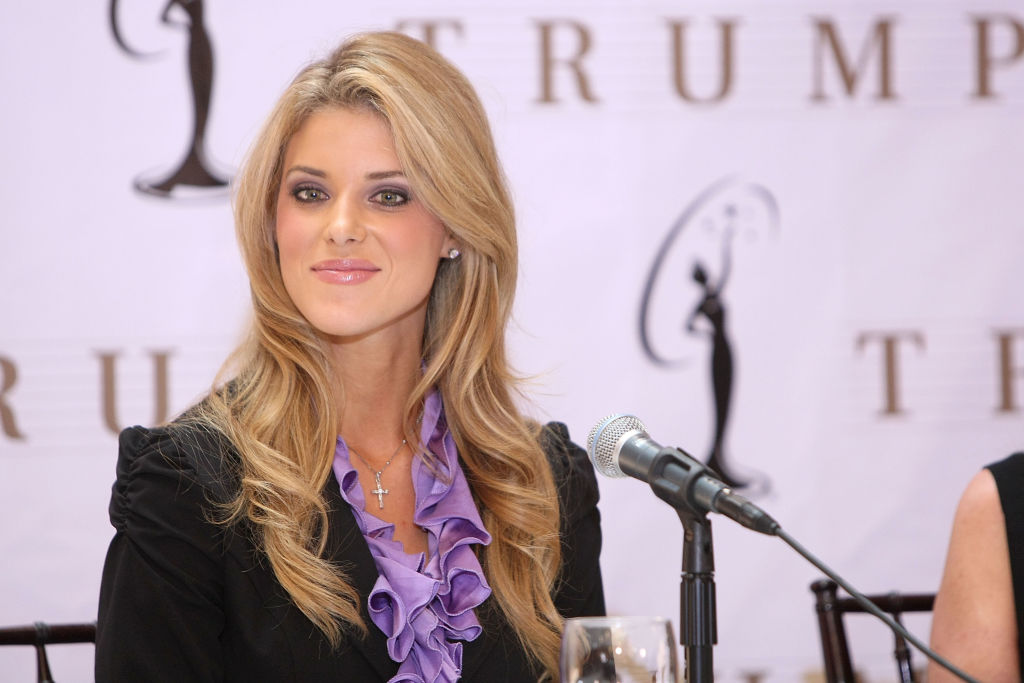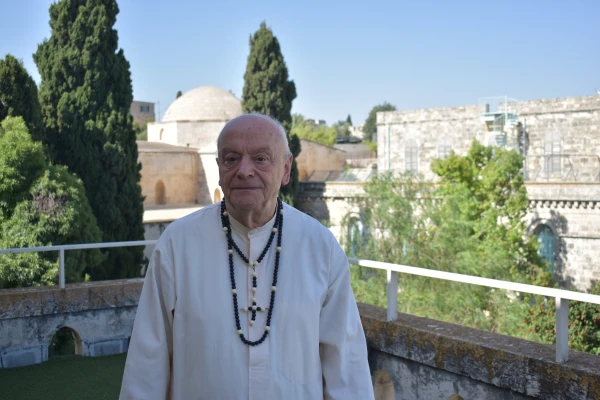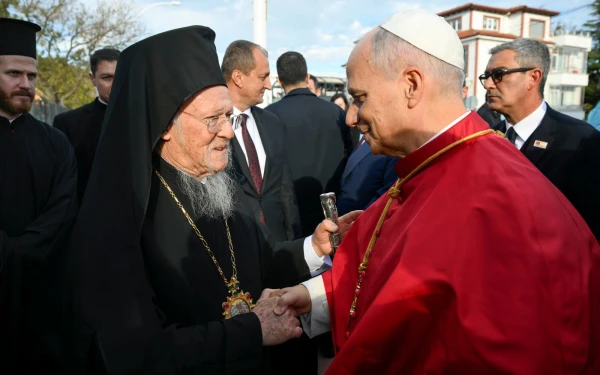http://www.myspiritfm.com/news?blogid=8838&view=post&articleid=292794&link=1&fldKeywords=&fldAuthor=&fldTopic=0
On March 15, a Catholic digital assets company known as Crescite Innovation Corporation will mint its first stablecoin, called Catholic USD.
Stablecoins such as Catholic USD are a type of digital asset that is backed by and will have a 1-to-1 value equivalence with the U.S. dollar (and are not to be confused with cryptocurrencies like bitcoin).
Catholic USDs can be used to make purchases from or donations to Catholic organizations the same way they would with any other payment method stored in smartphone wallets.
Donations and other financial transactions can take place all over the world and will be nearly instantaneous, fee-free, and secure, thanks to blockchain technology, Eddie Cullen, co-founder of Crescite, told EWTN News.
With blockchain technology, which has enabled the development of unregulated cryptocurrencies such as bitcoin and regulated digital assets such as stablecoins, traditional banks are no longer required to transfer or store money because all transactions are transparent and verifiable through the blockchain, which securely links together "blocks" of digital records.
"Traditional banks are like Blockbuster video, and digital assets are like the streaming services we all use today," Cullen said.
"People will no longer need traditional banks, thanks to this new technology," he continued.
Cullen and his co-founder, Karl Kilb III, started Crescite "because we love the Church," Cullen said. "We want Catholics to be at the forefront of this new technology, and we're using it to enable greater access to resources for people and to do good."
"The only difference between us and banks is that they take your money and leverage it to make a profit," Cullen said. "What we're doing is we're taking that leverage, and we're giving it away to Catholic institutions and causes."
"We created Crescite to be at the intersection of faith and technology, using innovation to help those in need, and society as a whole," Kilb said. "The Catholic community is global, with numerous organizations, projects, and causes that need sustainable, transparent funding, and we are leveraging blockchain technology to build such an ecosystem."
When a person buys Catholic USD, Crescite will invest that money in vehicles including U.S. Treasury bonds and will put 100% of that yield into a charity fund known as the Catholic Global Mercy Trust.
The trust will fund Catholic poverty relief efforts, hospitals, schools, and other causes all over the world.
"When we look at our work, it's really a Catholic digital asset ecosystem," Cullen said. "We have our stablecoin, and we are going to build upon that."
The money Crescite takes in through the sale of Catholic USD will be custodied, or held, in a digital wallet by a financial technology company known as BitGo, which in January completed its initial public offering (IPO) and began trading on the New York Stock Exchange. It is also chartered under U.S. law and authorized by the Office of the Comptroller of the Currency.
BitGo is "the platform that's issuing the stablecoin," Cullen said. It and Crescite will have no intermingled investments.
The funds Crescite holds are also insured.
"Crescite" means to increase or grow in Latin. Cullen said he and Kilb, who co-own the company and founded it together in 2021, chose the name after reflecting on the effects of God's touch on man-made things, as portrayed in the image of God's hand touching Adam's in Michaelangelo's famous painting on the ceiling of the Sistine Chapel.
Cullen said the name also refers to Genesis 1:28, when God tells Adam to "Be fruitful (increase) and multiply."
Bitcoin, the first cryptocurrency
The first cryptocurrency, which is very different from the stablecoin Crescite is issuing, was bitcoin, which came out in 2009 and whose inventor or inventors, known as Satoshi Nakamoto, is/are still unknown.
Bitcoin emerged as "pushback" to the 2008 financial crisis, according to The Catholic University of America Busch School of Business Professor Kevin May, who told EWTN News that consumers wanted something more "sound and reliable" than our current financial system after the crisis.
Bitcoin is decentralized and is the only true "open source" cryptocurrency, according to May.
Bitcoin's inventors no longer had "trust in the current financial system," where "the banks and bankers took bets; when they were right they privatized all the gains, and when they were wrong, they got bailed out and rebought their own shares," May said. "Hardly any of them got in trouble" while the financial markets and consumers paid for their actions.
The value of bitcoin has gone from several pennies at its initial launch to a high of $126,000 in October 2025. Currently, one bitcoin is valued at about $70,000.
Exchanges now exist where people can buy and sell bitcoin. There are even bitcoin-linked credit cards.
Bitcoin, however, is a true cryptocurrency in that it is not insured or backed by any currency, and it is not regulated by the federal government, meaning it could collapse at any moment and investors could lose their money.
A benefit of a cryptocurrency like bitcoin, according to May, is that it can "bank the unbanked, especially in societies where you cannot trust the leadership."
He used the example of a coffee farmer in Uganda who could trade in bitcoin and essentially have "his own bank on his cellphone," without having to deal with a corrupt or inefficient system.
The difference between 'cryptocurrency' and 'digital assets'
Digital assets like Catholic USD and cryptocurrencies such as bitcoin are alternatives to traditional financial institutions and government-backed currency made possible by blockchain technology.
However, the terms "digital assets" and "cryptocurrency" mean different things: Digital assets refer to stablecoins as well as tokenized securities, commodities, and other digital representations of real-world assets that do not imply the unregulated, speculative trading or volatility inherent with bitcoin.
Cullen explained that this is a major difference between bitcoin and stablecoins such as Catholic USD, which is actually backed by the U.S. dollar and will be regulated by the recently passed GENIUS Act, which is expected to increase the growth of and trust in stablecoins through clear regulatory rules.
Other existing stablecoins include USD1, which, like Catholic USD, is also a U.S. dollar-pegged stablecoin (designed to maintain a 1-to-1 value with the U.S. dollar).
USD1 was launched in March 2025 by World Liberty Financial, a decentralized finance (DeFi) platform and cryptocurrency venture closely associated with President Donald Trump and his family, though disclaimers emphasize that the Trump family are not officers or directors and that the cryptocurrency is not politically affiliated or endorsed.
A company called Tether Unlimited issued a stablecoin, USDT, which is the longest-running and largest U.S. dollar-pegged stablecoin, launched in 2014 and with a market cap around $184 billion (as of early 2026). It holds roughly 60%-70% of the total stablecoin market share with 534 million users as of early this year.
The GENIUS Act
Passed with bipartisan support and signed into law by Trump in July 2025, the Guiding and Establishing National Innovation for U.S. Stablecoins (GENIUS) Act establishes a clear, regulatory framework that legitimizes payment stablecoins and digital asset infrastructure.
It aims to preserve U.S. dollar leadership globally while allowing responsible private-sector innovation under defined guardrails.
Under the act, qualified nonbank entities may issue payment stablecoins under federal or state supervision, while banks and affiliates may also participate. This dual pathway is intended to foster competition, reduce concentration risk, and avoid stifling innovation.
Critics note the GENIUS Act does not fully address illicit finance risks in decentralized systems such as bitcoin, however.
Full Article




